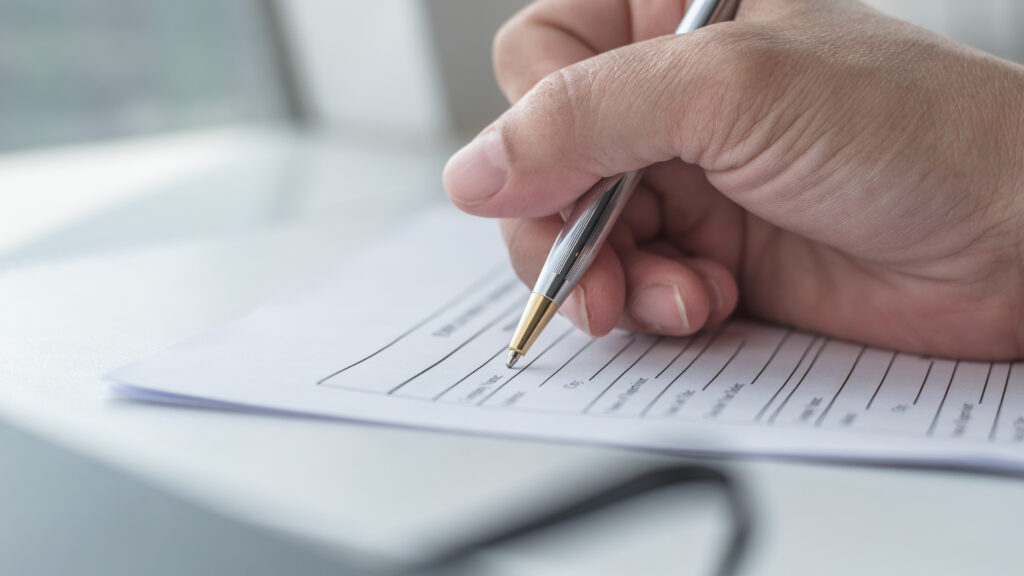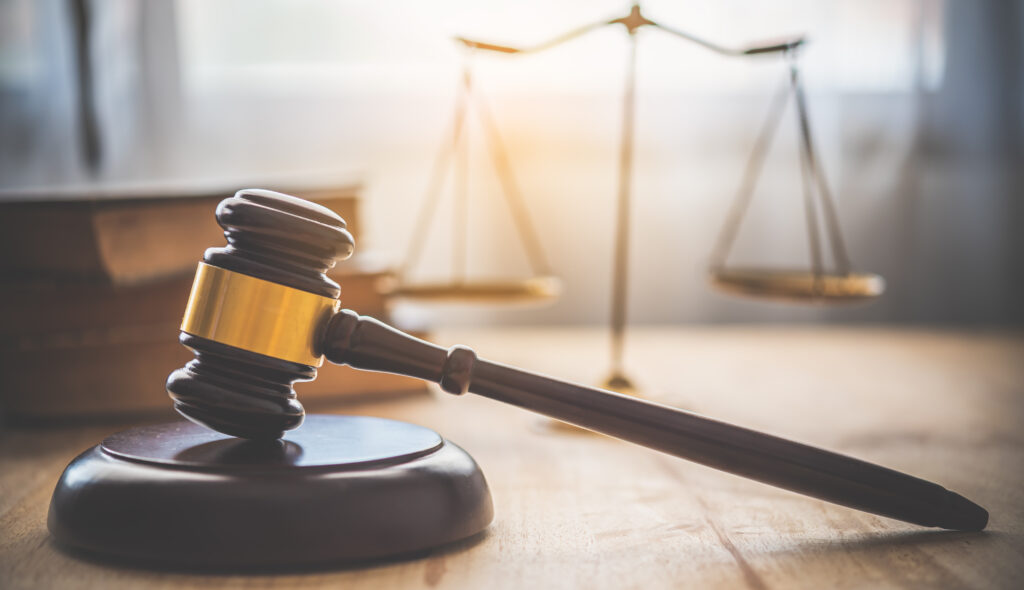Losing a loved one can be extremely traumatic. But, when someone else's negligent act causes their death, the pain can hurt even worse. In these scenarios, family members may pursue a wrongful death lawsuit.
That leaves two questions: What exactly is wrongful death? How does it differ from other types of legal claims?
Never hesitate to consult a Nebraska wrongful death lawyer to get answers to these and many additional questions following a devastating loss.
What Is Wrongful Death?
At its most basic level, wrongful death is a legal term used to describe a situation where a person dies due to the negligence, recklessness, or intentional actions of another party.
In other words, if the responsible party could have prevented someone's death by acting differently, it may be considered a wrongful death.
Wrongful death is a civil claim, which means the deceased person's family brings it rather than the government. A wrongful death lawsuit seeks financial compensation for the losses that the family has suffered because of their loved one's death, including medical bills, funeral expenses, lost income, and emotional distress.
Wrongful death differs from criminal charges that the responsible party may face. In a criminal case, the government brings charges against the accused party with the goal of punishment, such as imprisonment or fines. In a wrongful death case, the family brings a civil claim with the goal of recovering damages for their losses.
How Does the Law Define Wrongful Death?

The definition of wrongful death varies by state. Each state has its laws. However, a claim generally arises when someone dies due to another party's legal fault.
Legal fault can take many different forms, including:
- Negligence is the most common basis for a wrongful death claim. Negligence occurs when a party fails to act with the level of care that a reasonable person would use in a similar situation, and that failure harms another person.
- Recklessness: This is a more serious form of fault than negligence, and it occurs when a party acts with conscious disregard for the safety of others.
- Intentional acts: In some cases, an intentional act may cause a wrongful death, such as a violent crime or an assault.
To prove a wrongful death claim, the family must show:
- They must show that the responsible party owed a duty of care to the deceased person.
- They must show that the party broke that duty through negligent or wrongful actions.
- They must show that the breach of duty directly caused the person's death.
What Types of Situations Can Give Rise to a Wrongful Death Claim?
Wrongful death claims can arise in a wide variety of situations, from car accidents to falls.
Some common examples of situations that may give rise to a wrongful death claim include:
- Car accidents caused by a negligent or reckless driver
- Commercial truck crashes
- Falls and property-related accidents
- Dog bites and attacks
- Violent crimes, such as assault or homicide
In these situations, the key question is whether the responsible party's actions can have averted the loss of life. If the answer is yes, then the family may have grounds for a wrongful death claim.
Who Can File a Wrongful Death Claim?
Each state has its own rules for wrongful death claims. Generally, the deceased's estate representative must file the wrongful death claim. The will might name a family member, spouse, child as the personal representative. If not, a court-appointed executor or administrator may serve in that role.
In some states, specific rules govern how family members can bring a wrongful death claim. For example, the spouse, then the children, and then the parents may need to bring a claim in that order. In other states, any family member who suffered a loss as a result of the death can bring a claim.
Even if you don't file the wrongful death claim, you might still get a share of the damages. Typically, the deceased person's surviving family members share these damages. They receive their portion based on their relationship to the deceased and their losses.
What Damages Can Be Recovered in a Wrongful Death Case?
The damages recoverable in a wrongful death case vary by state. Still, in general, there are two main types of damages: economic and non-economic.
Economic damages are losses quantifiable in monetary terms, such as:
- The expenses for the injury or illness that led to the person's death.
- Burial and funeral expenses
- Lost income and benefits that the deceased person may have earned if they had lived
- Loss of inheritance that the family would have received if the deceased person had lived
Non-economic damages are losses that are more difficult to quantify in monetary terms, such as:
- Pain and suffering experienced by the deceased person before their death
- Emotional distress and loss of companionship suffered by the family members
- Loss of guidance and support that the deceased person may have provided to their family
Courts may award punitive damages. This punishes the defendant's notably wrong or reckless actions. These damages punish and prevent future wrongdoing.
The Legal Process for Pursuing a Wrongful Death Claim

If you believe that you may have a wrongful death claim, speak with a wrongful death attorney who can examine your case and advise you on your legal options. Your attorney can gather evidence, identify the responsible parties, and build a strong case for damages.
The specific legal process for pursuing a wrongful death claim may vary depending on the circumstances of the case and the state where you bring the claim. However, in general, the process may involve the following steps:
Filing a Complaint
The first step in pursuing a wrongful death claim is to file a complaint with the appropriate court.
The complaint is a legal document that outlines the facts of the case and the legal basis for the claim. It identifies the involved parties, including the deceased person, the family members bringing the claim, and the defendants alleged to be responsible for the death.
The complaint requires meticulous drafting and must include all the necessary elements of a wrongful death claim, such as:
- The identity of the deceased person and their relationship to the family members bringing the claim
- The circumstances surrounding the death, including the date, time, and location of the incident
- The defendants allegedly committed negligent or that claim to have caused the death
- The damages that the family members have suffered as a result of the death, including economic and non-economic losses
The complaint may also include a demand for a specific amount of damages, although this is not always required.
After drafting the complaint, it must be filed with the appropriate court and served on the defendants. This entails delivering a copy of the complaint to each defendant, accompanied by a summons requiring them to appear in court and respond to the allegations.
The complaint filing is an important step in the legal process, as it formally initiates the lawsuit and sets the stage for the rest of the proceedings.
Work with an experienced wrongful death lawyer who can correctly draft and promptly file the complaint, as you face strict deadlines for filing wrongful death claims.
Discovery
After filing the complaint, the parties will proceed with discovery, which is the formal exchange of information and evidence between the parties to a lawsuit. The purpose of discovery is to allow each side to learn about the other side's case and to gather the evidence they need to support their arguments.
In a wrongful death case, various methods of discovery may include:
- Interrogatories: Interrogatories are written questions one party sends to the other. They require answers under oath and can be used to gather basic information about the case, such as the identity of witnesses or the existence of relevant documents.
- Requests for production: These are formal requests for the other party to provide copies of specific documents or tangible evidence related to the case. This may include medical records, police reports, or other relevant documents.
- Depositions are formal interviews of witnesses or parties to the case conducted under oath and in the presence of a court reporter. They enable wrongful death attorneys to pose detailed questions and gather testimony for use as evidence at trial.
- Subpoenas: These legal orders require a person or entity to provide documents or testimony related to the case. Subpoenas enable gathering evidence from third parties not directly involved in the lawsuit.
The discovery process can be time-consuming and expensive, but building a strong wrongful death case is important. By gathering all of the relevant evidence and information, wrongful death lawyers can identify the strengths and weaknesses of each side's case and develop effective strategies for presenting their arguments to the court.
Settlement Negotiations
In many wrongful death cases, the parties negotiate a settlement before the case goes to trial. A settlement resolves the case without requiring a formal trial. In a settlement, the defendants agree to pay a certain amount of money to the family members in exchange for the family members agreeing to drop their legal claims.
Settlement negotiations can occur at any point during the legal process, from before the complaint to just before the trial commences. In some cases, the court may even require the parties to participate in mediation, a formal settlement conference conducted by a neutral third party.
There are several advantages to resolving a wrongful death case through a settlement, including:
- Faster resolution: Trials can be lengthy and time-consuming, often taking months or years to complete. A settlement can provide a faster resolution and allow the family members to move forward with their lives.
- Lower costs: Trials can require paying attorneys' fees, expert witnesses' fees, and other expenses. A settlement can reduce these costs and ensure that more compensation goes directly to the family members.
- More control over the outcome: In a trial, a judge or jury makes the final decision. In a settlement, the parties have more control over the outcome and can negotiate terms that work for everyone.
Ultimately, settling a wrongful death case is a personal decision you should make in consultation with an experienced wrongful death attorney. Estimate the potential value of your claim and negotiate with the defendants to try to reach a fair settlement.
If the parties cannot settle, the case proceeds to trial, where a judge or jury determines the outcome.
Trial

If the parties fail to settle a wrongful death case, the case will proceed to trial. A trial is a formal legal proceeding in which both sides present evidence and arguments to a judge or jury, who decides the case's outcome.
The trial process involves several different stages, including:
- Jury selection: If a jury decides the case, the first step is to select the jury members. This process is known as voir dire and involves questioning potential jurors to determine their suitability to serve on the case.
- Opening statements: After the jury is selected, each side will present an opening statement outlining their case and the evidence they plan to present.
- Presentation of evidence: Both sides will present evidence to support their arguments, including witness testimony, documents, and other exhibits. The plaintiffs (the family members bringing the claim) have the burden of proving their case by a preponderance of the evidence, which means that they must show that the defendants are more likely than not responsible for the wrongful death.
- Closing arguments: After presenting all the evidence, each side will deliver a closing argument summarizing their case and advocating for a specific outcome.
- Jury deliberation and verdict: If a jury decides the case, the jury will then deliberate in private and reach a verdict. If a judge is deciding the case, the judge will issue a written decision.
Both sides can present their evidence and arguments at trial and cross-examine the other side's witnesses. The judge or jury will then evaluate all of the evidence and arguments and reach a decision on liability (whether the defendants are responsible for the wrongful death) and damages (how much compensation the family members should receive).
Contact a Wrongful Death Attorney

We encourage you to consult a qualified wrongful death lawyer if you believe you may have a wrongful death claim. With the right legal representation, you can focus on grieving and healing while your attorney works to secure the justice and compensation you deserve.
Remember, taking action in a wrongful death case is not just about seeking lost financial compensation. It's also about holding the responsible parties accountable for their actions and conveying that negligence has consequences.
By pursuing a wrongful death claim, you can honor your loved one's memory and help prevent similar tragedies from happening to other families in the future.
Consult a wrongful death lawyer for free today.